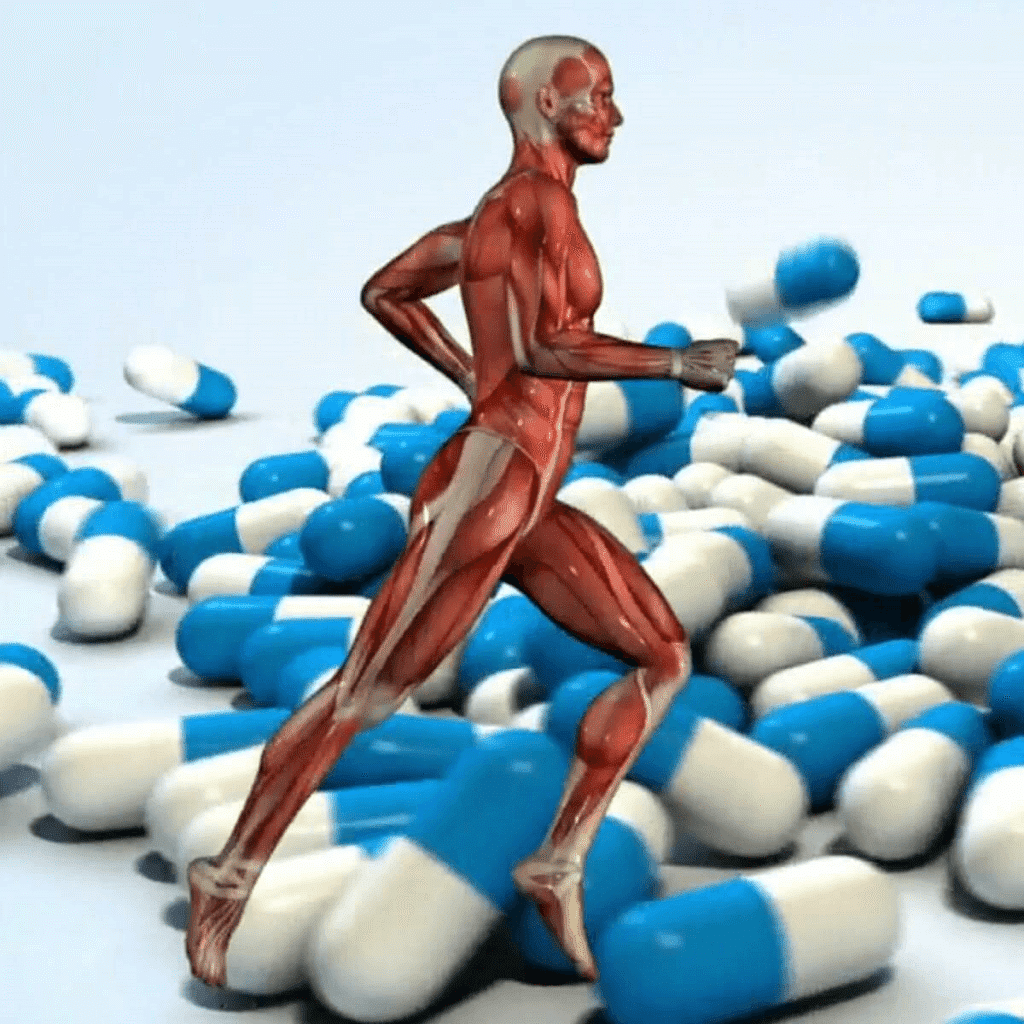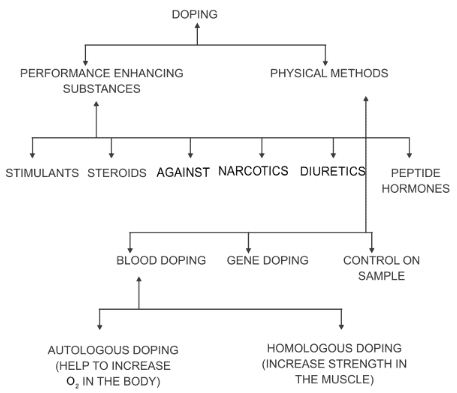Revision Notes, Doping, Physical Education | Physical Education Class 11 (XI) - CBSE and NCERT Curriculum PDF Download
Doping Fig: Doping12.1 Concept and classification of doping
Fig: Doping12.1 Concept and classification of doping
12.2 Prohibited substances and methods
12.3 Athletes responsibilities
12.4 Side effects of prohibited substances
12.5 Ergogenic aids and doping in sports
12.6 Doping control procedure.
Meaning of Doping:- When an athlete uses banned substances or methods to improve performance in sports it is called doping.
Example:- Drugs and steroid used.
 Fig: ClassificationProhibited Substances Methods
Fig: ClassificationProhibited Substances Methods

Doping Controlling Agencies-
WADA-World anti-doping agency
NADA-National anti-doping agency. Fig: NADA
Fig: NADA
12.3 Responsibilities of athletes
1. To follow the law and order made by Wada
2. Comply with the sampling procedure
3. To maintain control of your sample until it is sealed
4. Give the proper address of residence and office.
5. Give your Identity proof
6. To be available for a sample collection at all times
7. To co-operate with athlete testing programme.
Prohibited Substances and Methods
S. No. | Substances | Side effects |
1. | Stimulants | Cause Insomnia, anxiety, and aggression. It directly affects the central Nervous system and cardiovascular system. |
2. | Narcotics | Loss of balance and coordination, cause drowsiness, vomiting, Constipation. It may cause fainting. |
3. | Anabolic Steroids | Can cause blood pressure, Sudden heart Attack, Mood swing, aggression depression. It may also cause baldness and impotence in males, |
4. | Beta Blockers | Reduces endurance, headache and leak digestion |
5. | Cannabinoids | Reduces concentration and co-ordination, reduces lung capacity. |
6. | Diuretics | Causes dehydration, drowsiness and mineral imbalance. |
7. | Beta-2 Agonists | Cold hands, insomnia, depression etc. |
12.5 Ergogenics aids and doping in sports
Ergogenic aids are eternal inducer that can be determined to enhance performance in sports.  Fig: Ergogenic aidsThere includes:- 1. Mechanical Aids 2. Pharmacological aids
Fig: Ergogenic aidsThere includes:- 1. Mechanical Aids 2. Pharmacological aids
3. Physiological aids
4. Nutritional aids
5. Psychological aids
12.6 Doping Control Procedure:
Doping tool is done on the athlete by WADA (World anti-doping agency). This agency checks and control doping in sports. In India, the coordinating body under the WADA is named or national anti-doping agency. (NADA).
|
22 videos|47 docs|23 tests
|
FAQs on Revision Notes, Doping, Physical Education - Physical Education Class 11 (XI) - CBSE and NCERT Curriculum
| 1. What is doping in sports? |  |
| 2. Why is doping considered unethical? |  |
| 3. What are the consequences of doping in sports? |  |
| 4. How do sporting organizations prevent doping in sports? |  |
| 5. Can supplements be considered doping? |  |
|
22 videos|47 docs|23 tests
|

|
Explore Courses for Class 11 exam
|

|


















